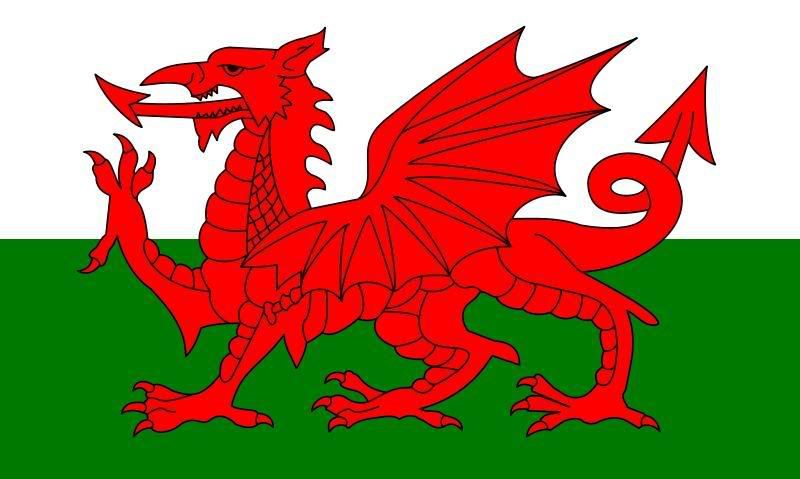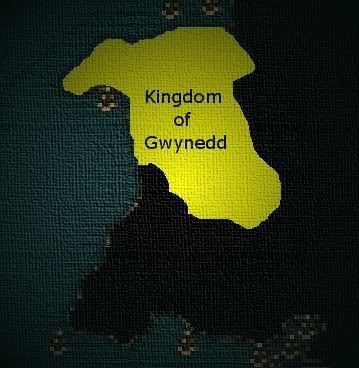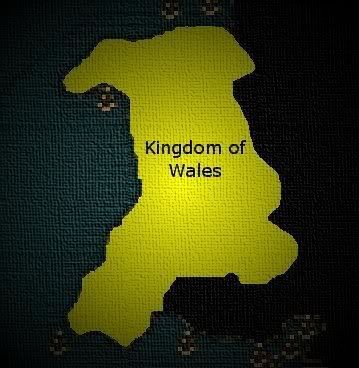The Heirs of King Arthur
A History of Wales

A History of Wales

Hello, and welcome to the exciting new series, History's Story. The goal of History's Story is to tell the story that is history to any and everyone who wishes to know about the past.
In this first programme, we will be learning about the history (and pre-history) of the Kingdom of Wales, dating back to the days of King Arthur and before.
Many people do not realise just how ancient the Welsh people really are. For the Welsh are the last remnants of the Britons, those ancient inhabitants of the land the Romans called Britannia. Theirs is a long and proud history, and one which we here at History's Story hope we can do justice. We hope you enjoy our humble programme.
Author's note: I have a few things I wish to point out.
Firstly, I am aware that much of the early history of the Britons (including King Arthur) is legend-a mixture of fact and fiction. I will do my best to avoid legends for the most part, except in the case of King Arthur, but I will make it very clear when I am writing about legend rather than history.
Second, this is my second AAR (my first is The Morea, A Palaeologid AAR). However, I am not abandoning my first AAR, but I will soon be taking a break from it (as soon as I finish recounting the Fifth Orthodox Crusade). During that break, I will be recounting my game as the Cynfyn dynasty. When this AAR is finished, work will resume on my first one. However, until the Crusade in my first AAR is finished, I will be posting updates here with a brief history of the Welsh people. Once the Crusade is finished, and work on this AAR can begin in earnest, I will begin telling the history of Bleddyn Cynfyn and his heirs.
Thirdly, this is my first attempt at a history book AAR. I have read great history book AARs by authAARs such as Veldmaarchsalk, VILenin, RossN, and many others, and I can only hope that this AAR will be even slightly comparable to their many great works.
Fourth, I will be playing CK version 1.05. The only modification I have made is to add a few names into the character names file. However, if I should one day conquer all of the British Isles, then in true Arthurian fashion, I will become "King of the Britons", which would require the creation of a new kingdom.
Fifth, each king will be roleplayed. My overall main goal will be to achieve "King of the Britons", but progress can only be made by the right kings, and could be ruined by the wrong ones.
_______________
CHAPTER I - The Ancient History of the Britons
CHAPTER II - The Rise of the Mathrafal Dynasty
CHAPTER III - A Time of Turbulance
CHAPTER IV - Gruffydd ap Llywelyn, The Last Non-Mathrafal King
CHAPTER V - Bleddyn ap Cynfyn, "The mildest and most clement of kings"
CHAPTER VI - Wales United
CHAPTER VII - Gains and Losses in War
CHAPTER VIII - A New Hope For The Mathrafal Dynasty
CHAPTER IX - The First Years of Cadfan ap Maredudd, The Golden Age of Wales
CHAPTER X - Death and Despair Strike the Kingdom
CHAPTER XI - Idwal the Confessor and the House of Llywerch
CHAPTER XII - How Heroes Are Born
CHAPTER XIII - The Brief Reign of Clydog the Brave
CHAPTER I - The Ancient History of the Britons
CHAPTER II - The Rise of the Mathrafal Dynasty
CHAPTER III - A Time of Turbulance
CHAPTER IV - Gruffydd ap Llywelyn, The Last Non-Mathrafal King
CHAPTER V - Bleddyn ap Cynfyn, "The mildest and most clement of kings"
CHAPTER VI - Wales United
CHAPTER VII - Gains and Losses in War
CHAPTER VIII - A New Hope For The Mathrafal Dynasty
CHAPTER IX - The First Years of Cadfan ap Maredudd, The Golden Age of Wales
CHAPTER X - Death and Despair Strike the Kingdom
CHAPTER XI - Idwal the Confessor and the House of Llywerch
CHAPTER XII - How Heroes Are Born
CHAPTER XIII - The Brief Reign of Clydog the Brave
Last edited:




